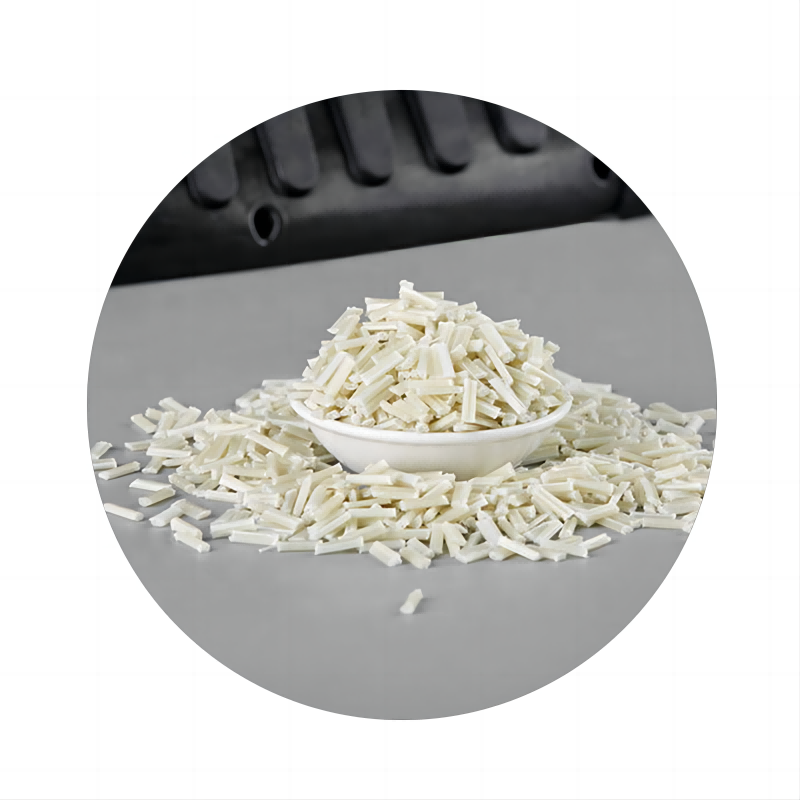Fiberglass-reinforced nylon Glass-filled nylon, sometimes referred to as PA polymers, is a category of engineering thermoplastic that combines the strengths and rigidity of glass fibers with the characteristics of nylon. Combining these two properties yields a material that is very strong, light, and resistant to many environmental influences. In this article, we’ll examine the key features of nylon PA plastics reinforced with glass fibers as well as some of the industries in which they’re used.
1.Improved Strength and Stiffness: The improved strength and stiffness of glass fiber reinforced nylon PA plastics is one of its primary features. The mechanical qualities of the material are greatly enhanced by the addition of glass fibers to the nylon matrix, making it stronger and more rigid than conventional nylon. This improved strength makes it suited for applications where structural integrity is important since it enables the creation of lightweight components that can sustain high loads and stresses.
2. great Chemical Resistance: Nylon PA plastics reinforced with glass fiber have great chemical resistance, making them appropriate for use in severe areas where chemical exposure is frequent. Due to this property, the material may continue to function well even after being exposed to different chemicals, such as acids, bases, and solvents. As a result, it has uses in sectors including oil and gas, chemical processing, and the automobile industry.

3. strong Dimensional Stability: The strong dimensional stability of glass fiber reinforced nylon PA plastics is another crucial feature. This indicates that the material keeps its size and form even in situations of fluctuating humidity and temperature. This quality is very useful in situations when exact measurements and close tolerances are necessary, such as when producing electrical connections and precision components.
4. Low Thermal Expansion: Glass fiber reinforced nylon PA polymers have a low coefficient of thermal expansion, meaning that changes in temperature have a little effect on how much they expand and contract. This property decreases the possibility of warping or distortion owing to temperature changes, making them appropriate for applications where dimensional stability is essential. Additionally, it enables improved overall performance in hot settings and allows for tighter fitting.
5. good Impact Resistance: Glass fiber reinforced nylon PA polymers have good impact resistance, making them ideal for uses that call for long-lasting, impact- and shock-resistant materials. Glass fibers in the material improve its capacity to deflect and disperse impact forces, lowering the possibility of damage or failure. This quality makes it a popular option in sectors including consumer products, sports equipment, and aircraft.
In summary, glass fiber reinforced nylon PA plastics have a number of crucial qualities that make them highly sought-after in a variety of sectors. They are ideal for a variety of applications due to their improved strength and stiffness, great chemical resistance, high dimensional stability, minimal thermal expansion, and excellent impact resistance. Glass fiber reinforced nylon PA plastics offer a dependable and long-lasting alternative for businesses looking for high-performance materials, whether they are in the automotive, aerospace, or consumer products industries.











